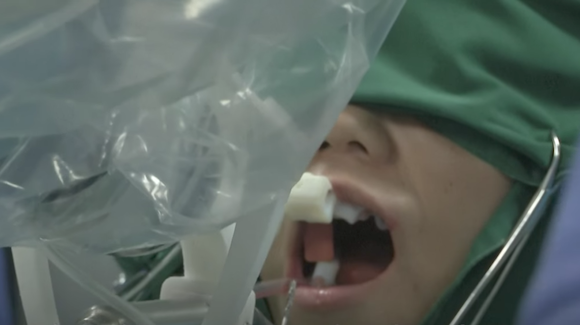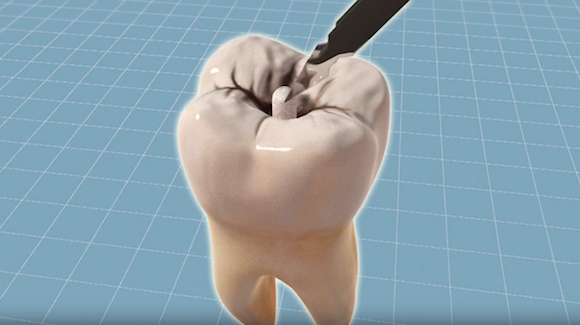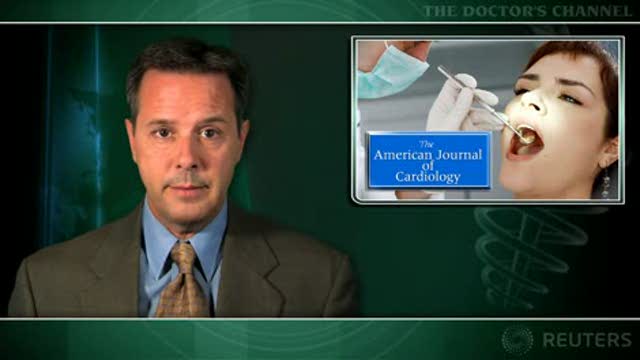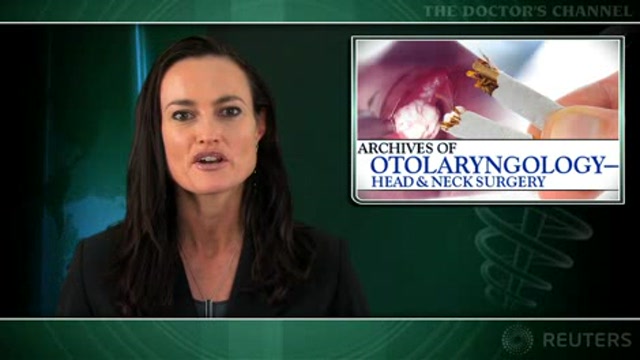The Dentistry Channel
August 8, 2011 • Dentistry, Family Medicine, Internal Medicine, Reuters Health • The Doctor's Channel Newscast
NEW YORK (Reuters Health) – There is no need to interrupt antiplatelet therapy before tooth extractions, as long as appropriate local hemostatic measures are taken, according to results of a prospective study conducted at the Aristotle University Dental School in Thessaloniki, Greece.
While postextraction bleeding events are likely to occur under uninterrupted dual aspirin and clopidogrel therapy, they are limited to the immediate postprocedure time frame, occurring within the “safe environment of a dental clinic” and can be treated successfully with appropriate local hemostatic measures, the researchers found.
Tooth extraction is the most frequent minor surgical procedure performed, they note in a report in the American Journal of Cardiology, available online now. For the growing number of patients on antiplatelet therapy, the known thrombotic risk of stopping antiplatelet therapy needs to be balanced against the putative hemorrhagic risk of uninterrupted antiplatelet therapy, they add.
In an email to Reuters Health, Dr. George Giannoglou, professor of cardiology at AHEPA University Hospital, said: “Our rationale for planning and performing this study was based on two observations: (1), there are currently no official guidelines regarding dental management of patients receiving antiplatelets, and (2), while it is recommended that patients on dual antiplatelets should undergo dental procedures without stopping their medication, these recommendations are frequently not followed in routine practice.”
“In every-day practice,” he added, “many dentists tend to temporarily withdraw their patients’ antiplatelet drugs, because these are perceived to increase the risk of uncontrolled bleeding at the sites of dental extraction. This practice, though, is empirical rather than evidence-based.”
Dr. Giannoglou and his colleagues compared the risk of immediate and late postextraction bleeding in 643 consecutive patients referred for tooth extraction. One hundred eleven were on clinically indicated antiplatelet therapy; 42 were on aspirin, 36 were on clopidogrel, and 33 were on a regimen of aspirin and clopidogrel. The remaining 532 patients were not on antiplatelet treatment and served as controls.
According to the researchers, prolonged immediate bleeding – defined as the need to use hemostatic gauze when blood extended beyond the tooth socket after 30 minutes of biting on a pressure pack – occurred in 2 patients (0.4%) in the control group, 1 patient (2.4%) on aspirin, 1 patient (2.8%) on clopidogrel, and 22 patients (66.7%) on dual antiplatelet therapy.
Compared to controls, the risk of prolonged immediate bleeding was significantly higher in patients on dual antiplatelet therapy (relative risk [RR] 177.3) but not in patients on aspirin alone (RR 6.3) or clopidogrel alone (RR 7.4).
Bleeding risk was “clearly” higher in patients on dual antiplatelet therapy compared to those on aspirin only (RR 28) or clopidogrel only (RR 24), the researchers report. However, all immediate bleeding complications in all patient groups were successfully controlled by suturing and application of oxidized cellulose gauze.
“Importantly,” the incidence of late hemorrhage did not increase with dual antiplatelet therapy, a “putatively high-risk bleeding-prone population,” they note. There were no cases of late bleeding.
Bleeding complications that did occur were seen most often in patients with periodontitis.
The presence of periodontitis “could thus enable risk stratification of patients who are more likely to develop hemorrhage while receiving antiplatelets to ensure a higher index of suspicion and prompt appropriate hemostatic measures,” the researchers say.
“Our results support the safety of dental extractions on uninterrupted single and dual antiplatelet therapy with appropriate local hemostatic measures,” the study team concludes.
“There are certain cases where our study cannot provide answers about the safety of extractions while taking antiplatelets,” Dr. Giannoglou emphasized. “First,” he explained, “we excluded patients with more than 3 extractions at the same session, and we cannot extrapolate our results to patients with > 3 extractions.”
Second, he noted that there are some newer antiplatelet agents, like prasugrel, that were not assessed in the study. “The safety of extractions in prasugrel-receiving patients may merit further investigation,” he said.
Reference:
Safety of Dental Extractions During Uninterrupted Single or Dual Antiplatelet Treatment
Am J Cardiol 2011. Published online July 25, 2011.






